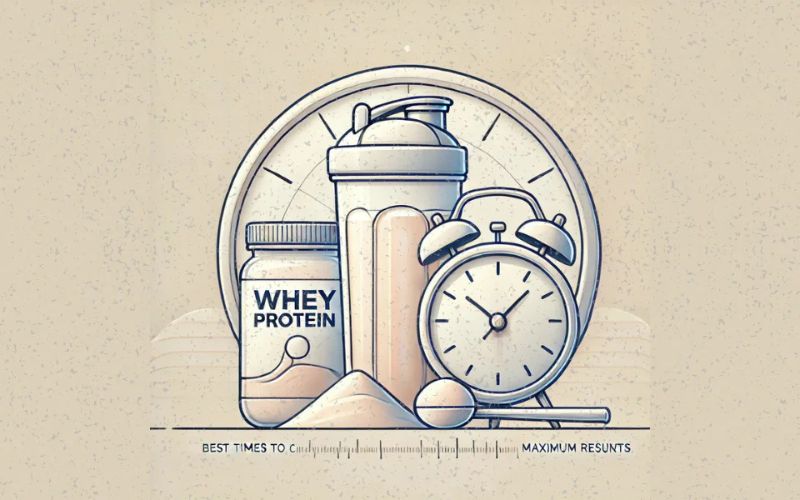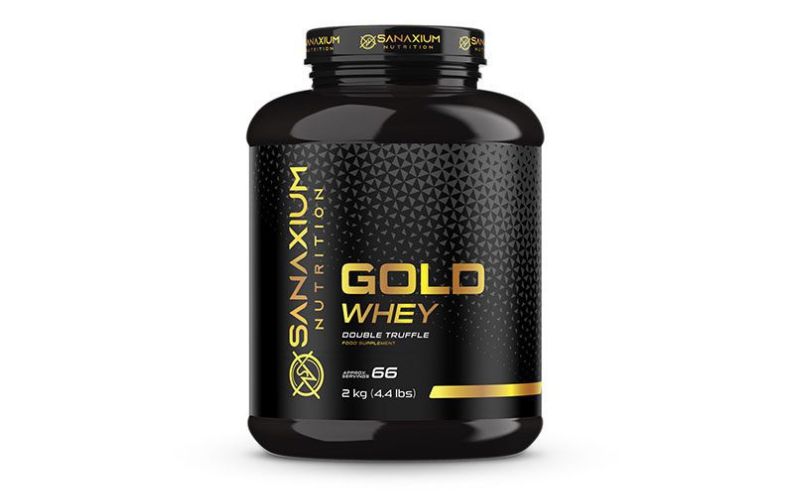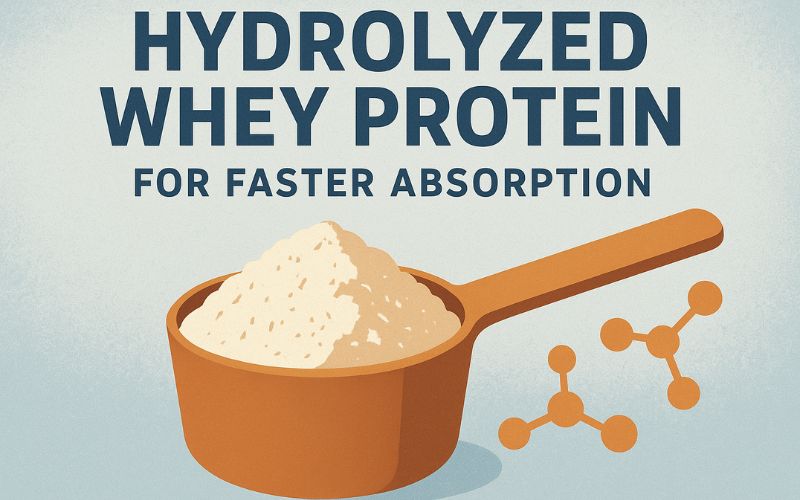Whey protein, a byproduct of cheese production, is revered for its rich amino acid profile. It has become a staple in the diets of athletes, bodybuilders, and health enthusiasts. This high-quality protein source offers numerous benefits, from muscle growth to enhanced recovery. Understanding the best time to take whey protein can maximize these benefits and improve overall fitness outcomes. With the whey protein Pakistan price becoming more competitive and accessible, fitness enthusiasts across the country can now invest in premium quality supplements that deliver exceptional nutritional value and support their training regimens effectively.
Whey protein is also notable for its bioavailability, meaning it is quickly and efficiently absorbed and utilized by the body. This rapid absorption makes it particularly effective for muscle repair and growth, as it provides a swift supply of amino acids post-exercise. Additionally, the presence of branched-chain amino acids (BCAAs), especially leucine, plays a pivotal role in stimulating muscle protein synthesis. When considering the whey protein price in Pakistan, consumers should evaluate factors such as protein concentration, brand authenticity, and quality certifications to ensure they’re making an informed investment in their health and fitness journey.
Table of Contents
Types of Whey Protein and Their Optimal Use

Whey protein is available in three primary forms: concentrate, isolate, and hydrolysate. Each type differs in terms of processing, protein content, digestion speed, and suitability for specific goals or dietary restrictions.
- Whey Protein Concentrate (WPC) This is the most common and cost-effective form. It typically contains 70–80% protein along with small amounts of fats and carbohydrates, including lactose. WPC is ideal for general fitness goals and for individuals who do not have lactose intolerance. Its slower digestion rate compared to isolate makes it suitable for sustained amino acid release.
- Whey Protein Isolate (WPI) WPI undergoes further processing to remove most fats and lactose, resulting in over 90% protein content. It is absorbed more quickly than concentrate and is a better choice for those with lactose sensitivity or who are aiming for lean muscle gain. It’s especially useful when taken post-workout due to its fast absorption.
- Whey Protein Hydrolysate (WPH) Hydrolysate is pre-digested, meaning it is broken down into smaller peptides for faster absorption. This form is often used in clinical settings or for individuals with specific recovery needs. It’s ideal for rapid muscle recovery, especially post-workout or after intense training sessions
Benefits of Whey Protein
The benefits of whey protein extend beyond muscle growth. It aids in muscle repair and recovery, supports weight loss by promoting satiety, and enhances the body’s antioxidant defenses. Whey protein is also linked to improved immune function and better cardiovascular health. The presence of essential amino acids makes it a complete protein source, which is crucial for various biological processes.
- One of the most prominent benefits of whey protein is its role in muscle hypertrophy. Regular intake, particularly around workout sessions, can lead to significant gains in muscle mass and strength. This is due to its ability to quickly elevate amino acid levels in the bloodstream, thereby facilitating protein synthesis and muscle repair.
- Whey protein also plays a crucial role in weight management. Its ability to promote satiety helps reduce overall calorie intake, making it easier to adhere to a caloric deficit. Additionally, the thermogenic effect of protein digestion can slightly increase metabolic rate, further aiding in weight loss efforts.
- Another notable benefit is whey protein’s role in enhancing antioxidant defenses. It boosts the production of glutathione, one of the body’s most potent antioxidants. This can help protect cells from oxidative stress and damage, supporting overall health and longevity.
- Whey protein also supports immune function. It contains immunoglobulins and lactoferrin, which have antimicrobial properties and can enhance the immune response. This is particularly beneficial for individuals engaged in intense training, as strenuous exercise can temporarily suppress the immune system.
- In terms of cardiovascular health, whey protein has been shown to improve several risk factors. It can help reduce blood pressure, lower LDL cholesterol levels, and improve blood vessel function. These effects are thought to be mediated by the bioactive peptides released during digestion.
Optimal Timing for Taking Whey Protein

The timing of whey protein intake can significantly influence its effectiveness. While there is no one-size-fits-all answer, strategic timing can enhance muscle synthesis and recovery. Factors such as individual goals, workout schedules, and daily routines play a role in determining the optimal timing. Let’s explore different scenarios to identify the best times for consuming whey protein.
Morning Consumption
Taking whey protein in the morning can kickstart your metabolism and provide your body with essential nutrients after an overnight fast. This can be particularly beneficial for those looking to build muscle or maintain lean body mass.
- A protein-rich breakfast can also help control appetite and reduce cravings throughout the day, supporting weight management efforts.
- Starting the day with whey protein ensures that your muscles receive a quick and efficient supply of amino acids, which can halt catabolism that occurs during sleep.
- For individuals who engage in morning workouts, consuming whey protein can prepare the body for the physical demands ahead, enhancing performance and endurance.
Pre-Workout Intake
Consuming whey protein before a workout can fuel your muscles and improve performance. It provides a readily available source of amino acids that can prevent muscle breakdown during intense exercise. This preemptive nutrition strategy can enhance endurance, reduce fatigue, and ensure that your muscles are primed for growth and repair during and after the workout.
Pre-workout whey protein intake also helps maintain glycogen stores, providing an energy boost that can sustain longer and more intense workouts. By supplying the body with branched-chain amino acids (BCAAs), whey protein can reduce muscle soreness and improve the overall quality of training sessions.
Post-Workout Intake
Post-workout is arguably the most crucial time to consume whey protein.
- The body enters a state of heightened protein synthesis after exercise, and providing it with a quick-digesting protein source like whey can optimize muscle repair and growth.
- This anabolic window is typically within 30 minutes to an hour after the workout.
- Consuming whey protein during this time can replenish glycogen stores, reduce muscle soreness, and accelerate recovery.
- During this post-exercise period, the body’s ability to utilize amino acids for muscle protein synthesis is at its peak.
- Whey protein, with its high leucine content, can effectively trigger this process, leading to increased muscle mass and strength over time.
Additionally, post-workout whey protein can aid in reduction of muscle damage and inflammation, ensuring quicker recovery and better performance in subsequent workouts.
Before Bed Consumption
Taking whey protein before bed can support overnight recovery and muscle preservation. During sleep, the body undergoes significant repair and regeneration processes.
Providing a sustained release of amino acids through a slow-digesting protein source like casein is often recommended, but whey protein can also be beneficial when paired with other foods to slow its digestion. This can help maintain a positive nitrogen balance and prevent muscle catabolism.
Combining whey protein with a source of healthy fats or fibrous carbohydrates can create a slower release of nutrients, extending the delivery of amino acids throughout the night. This practice can be particularly advantageous for individuals aiming to maximize muscle hypertrophy and prevent muscle breakdown during prolonged periods without food intake.
Whey Protein Timing on Rest Days
While whey protein is commonly associated with workout days, it’s equally important to maintain adequate protein intake on rest days to support muscle repair and recovery.
Why It Matters Rest days are when your muscles actually repair and grow. Providing a consistent supply of amino acids helps maintain a positive nitrogen balance, which is essential for muscle maintenance and metabolic functions.
Recommended Timing
- Morning: To prevent muscle catabolism after overnight fasting.
- Between Meals: To maintain steady amino acid levels.
- Before Bed: When paired with a slower-digesting protein or healthy fat, it can support overnight recovery.
Special Considerations for Whey Protein Timing

Certain individuals may have unique needs that influence their whey protein timing.
- For example, those with digestive issues may benefit from spreading protein intake throughout the day.
- Athletes involved in multiple daily training sessions might require frequent protein consumption to support continuous recovery.
- Additionally, vegetarians and those with limited dietary protein sources may need to carefully plan their intake to meet their nutritional needs.
- For those on a caloric deficit, timing whey protein around meals can enhance satiety and help preserve lean body mass.
- Additionally, older adults may benefit from higher protein doses in the morning and after workouts to counteract age-related muscle loss, known as sarcopenia.
Gender-Specific Considerations
Different genders often have different fitness goals and nutritional needs. Tailoring whey protein intake to these needs can enhance outcomes.
For Women
- Supports lean muscle mass without unwanted bulk.
- Helps meet higher protein demands during menstrual cycles or pregnancy.
- Aids in bone density and hormonal balance.
For Men
- Assists in muscle hypertrophy and strength gains.
- Supports testosterone levels and recovery.
- Enhances performance in strength and endurance training.
Age-Related Timing Strategies
Protein metabolism and muscle synthesis capacity decline with age, making timing and type of protein intake more crucial.
Younger Adults (18–35 years)
- Benefit from pre- and post-workout whey for performance and recovery.
- High leucine content in whey supports rapid muscle building.
Older Adults (40+ years)
- Require higher protein intake to combat anabolic resistance.
- Timing protein intake post-exercise and during morning hours is effective.
- Regular whey consumption helps prevent sarcopenia and maintain mobility.
Conclusion
The best time to take whey protein depends on individual goals, lifestyle, and nutritional requirements. Whether consumed in the morning, before or after workouts, or before bed, whey protein can offer significant benefits when strategically timed.
Understanding your body’s needs and aligning protein intake with your fitness objectives can enhance muscle growth, recovery, and overall health. By incorporating whey protein at the optimal times, you can maximize its potential and achieve your desired outcomes.




























